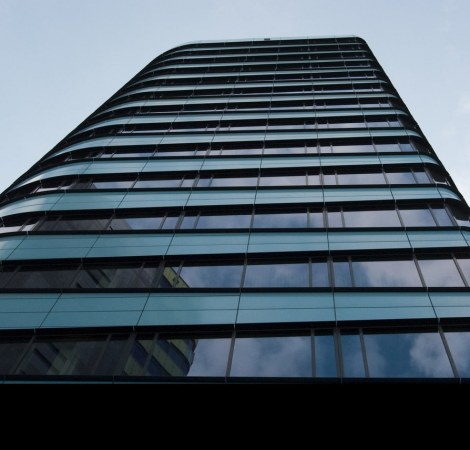Vietnam offers a stable macroeconomic and political climate with a potential for strong economic growth and an increasingly prosperous consumer market. During the last decade, the country’s economy has grown at an average of 7.2% annually and has successfully drawn FDI worth USD 15.8 billion in 2020. Moreover, to boost economic activities in the country, the government has employed Industry 4.0 in its bid to promote the digital revolution.
Furthermore, many investors flock to the country for its fairly practical tax regulations. The Vietnamese government has a simple and transparent tax structure. It imposes a business tax rate of 20% and a regular VAT rate of 10%. With the 44th rank on the Global Innovation Index, only 44 days on average are needed for a new business to start operating in Vietnam. You can also incorporate a company in as little as 30 days with an experienced consultant.
Vietnam’s major industries
Technology, healthcare, food, and telecommunications contribute to 41.63% of the national GDP. The set of industries that made the second highest contribution of 14.85% comprised retail, wholesale, infrastructure, transportation, storage, and construction. Forestry, fishing, and agricultural industries made the third highest contribution.
Strengths & challenges for a prospective FDI company in Vietnam
Vietnam’s popularity with investors can be attributed to the following factors:
- Skilled and affordable labor pool
- Growing middle-income consumers, resulting in increased purchasing power
- Rapidly increasing internet penetration
However, some of the challenges investors face are funding issues for startups, inadequate IT infrastructure, and lack of regulations on Intellectual property.
Summary of FDI types
Foreign Direct Investment (FDI) is when a company or individual from one country acquires shares or stocks of another company operating in a different country. Businesses that engage in FDI are classified as MNCs (multinational companies), also known as MNEs (multinational enterprises).
Here are four major types of foreign direct investment:
1. Horizontal Foreign Direct Investment
This type of FDI is an expansion of the company’s operations in the home country to the host country. The company will not add new operations, rather it will conduct the same activities in another country.
2. Vertical Foreign Direct Investment
By leveraging a diverse supply chain, a company expands its activities to the host country. The company carries out different operations in the host country but is related to the primary business.
3. Conglomerate Foreign Direct Investment
It refers to a process wherein a company gains entry into a foreign market by acquiring an entity that has a different primary business.
4. Platform Foreign Direct Investment
When a company expands to a foreign market and the output of the business operations are exported to another nation.
Options for foreign investors in Vietnam
In 2020, the Vietnamese government issued the latest Law on Investment, which dictates the forms of investment available to local and foreign entities.
Under these regulations, individuals and organizations not native to Vietnam can convert a local company into an FDI company through two methods:
Convert into a 100% foreign-owned company
If the foreign investor(s) acquires the company and becomes the sole owner, the company will be made up completely of FDI capital.
The conversion process requires making adjustments to the enterprise registration certificate (ERC). As the conversion is equivalent to an ownership transfer, all information regarding the owner and capital contribution needs to be updated.
The investor(s) doesn’t need to obtain an investment registration certificate (IRC), unless they plan to operate in fields where there are restrictions on FDI.
Convert into a partially foreign-owned company
The foreign investor(s) can choose to purchase shares or stakes of the existing company and become a shareholder. When the total proportion of foreign-owned shares exceeds 51%, the company is considered by law to be foreign-invested.
Because of the change in shareholders and likely charter capital, the ERC will need to adjust as well.
Note that in this process, the company may also be converted from a sole proprietorship to a multi-member partnership.
RELATED: Should You Establish an LLC or JSC When Entering Vietnam?
Foreign Investment on the rise in Vietnam
With the current global production shift away from China, economies in Southeast Asia have gained a lot of traction. When compared to its neighboring countries, Vietnam has demonstrated greater potential for drawing foreign direct investment (FDI). The country’s FDI reached USD 16 billion in 2020 according to the United Nations Conference on Trade and Development (UNCTAD) Investment Report 2021.
Despite the prevalence of COVID-19 in 2021, Vietnam received USD 23.74 billion in FDI between January and October. This amount was distributed among 18 sectors with processing and manufacturing bagging the highest share (53.7%).
FDI projects brought in revenue worth more than USD 7.09 billion, a year-on-year increase of 24.2%. FDI in the form of share purchases and capital contributions generated revenue worth USD 3.63 billion.
One driving factor of the strong FDI inflow is the country’s participation in over a dozen multilateral and bilateral trade agreements of a large scale, namely the Regional Comprehensive Economic Partnership (RCEP), Comprehensive and Progressive Agreement for Trans-Pacific Partnership (CPTPP), and the Vietnam – EU Free Trade Agreement (EVFTA). Other bilateral trade agreements between Vietnam and South Korea, the UK, Japan, and the US are also in place.
This article was originally published in March 2020, and was updated with the latest regulations and data in November 2022.
Originally published: 6 March 2020; latest update: 16 November 2022.
About Us
InCorp Vietnam is a leading provider of global market entry services. We are part of InCorp group, a regional leader in corporate solutions, that encompasses 8 countries in Asia-Pacific, headquartered in Singapore. With over 1,100 legal experts serving over 15,000 Corporate Clients across the region, our expertise speaks for itself. We provide transparent legal consulting, setup, and advice based on local requirements to make your business perfectly fit into the market with healthy growth.
Don’t take our word for it. Read some reviews from some of our clients.
